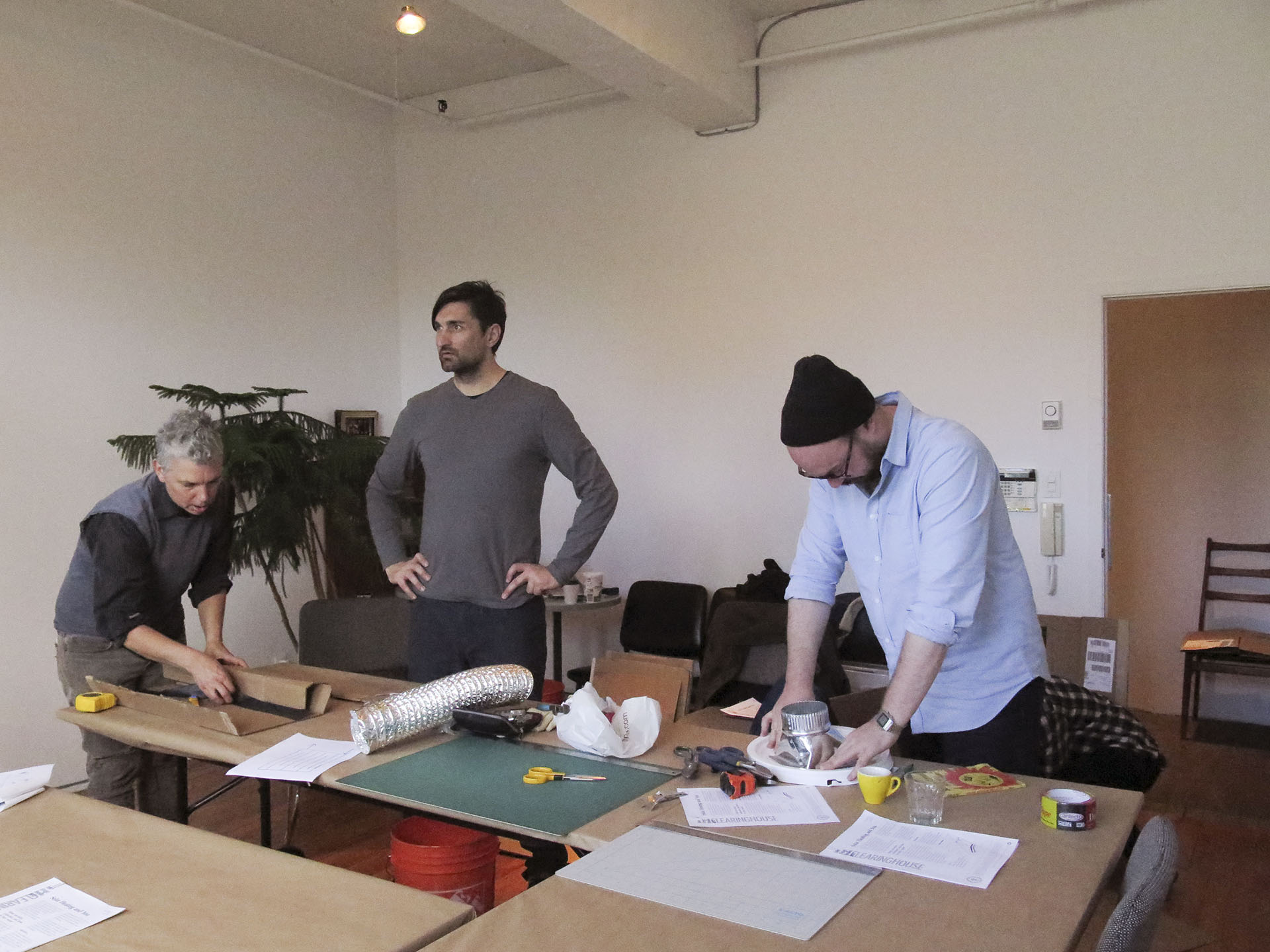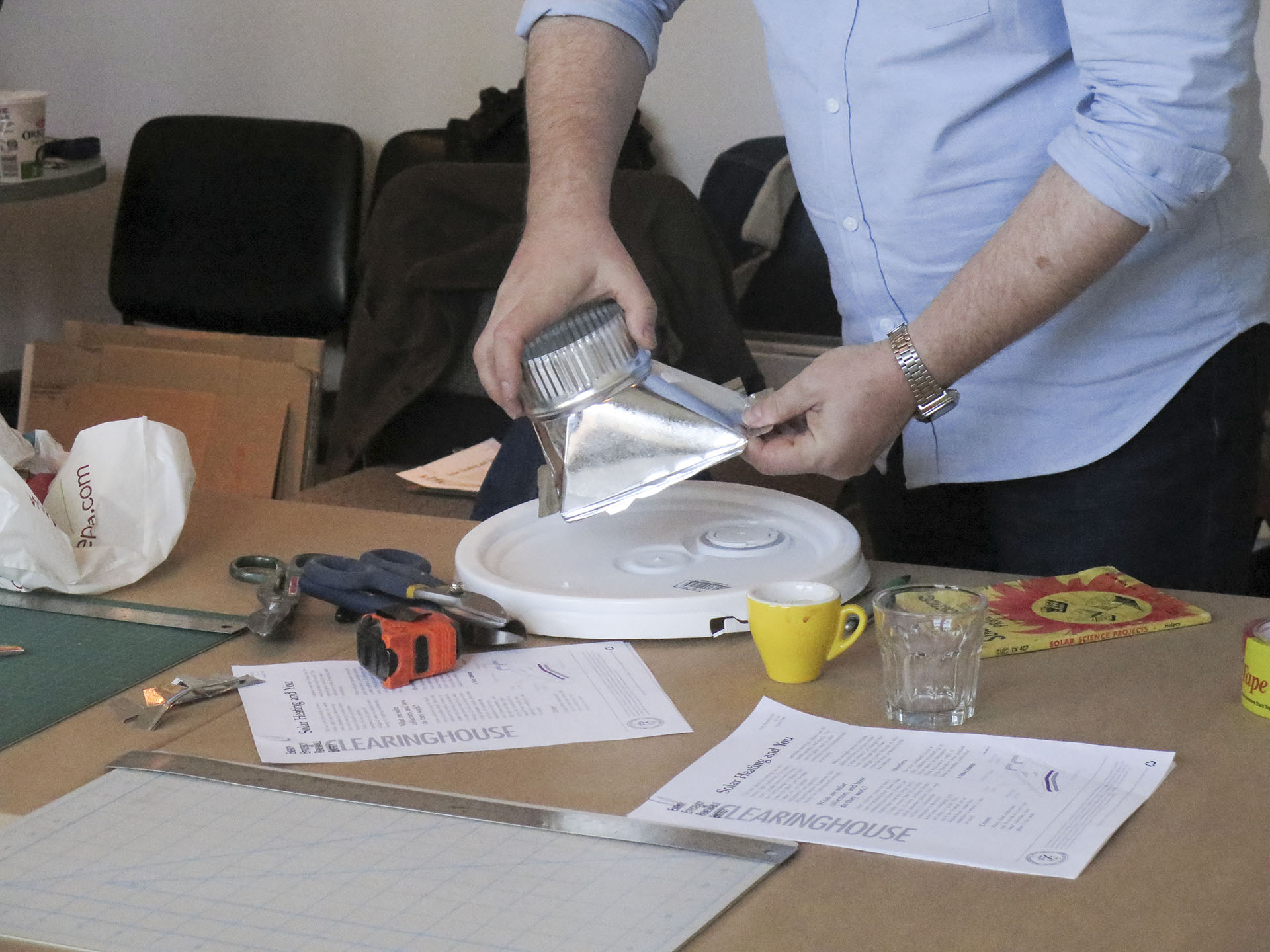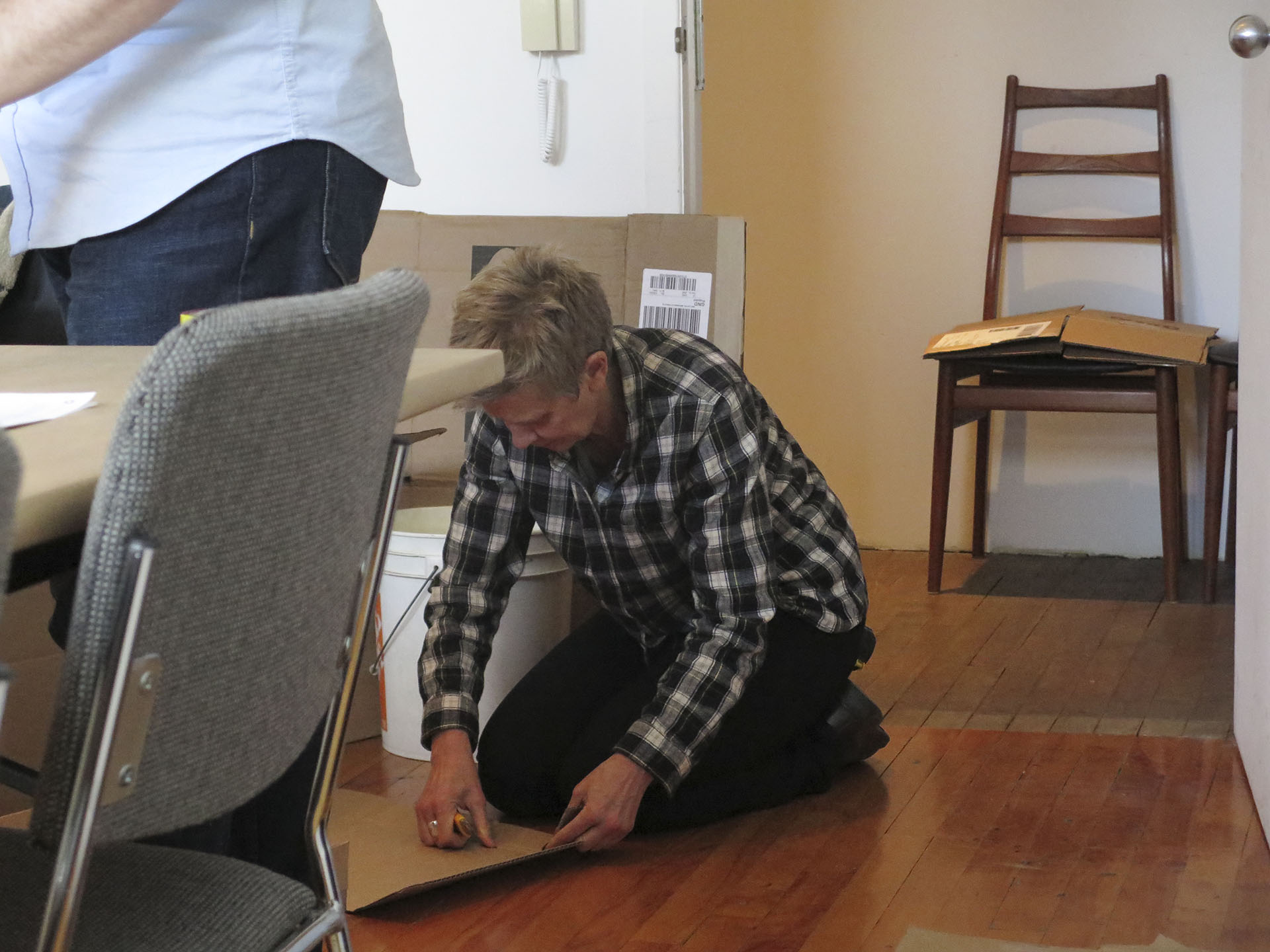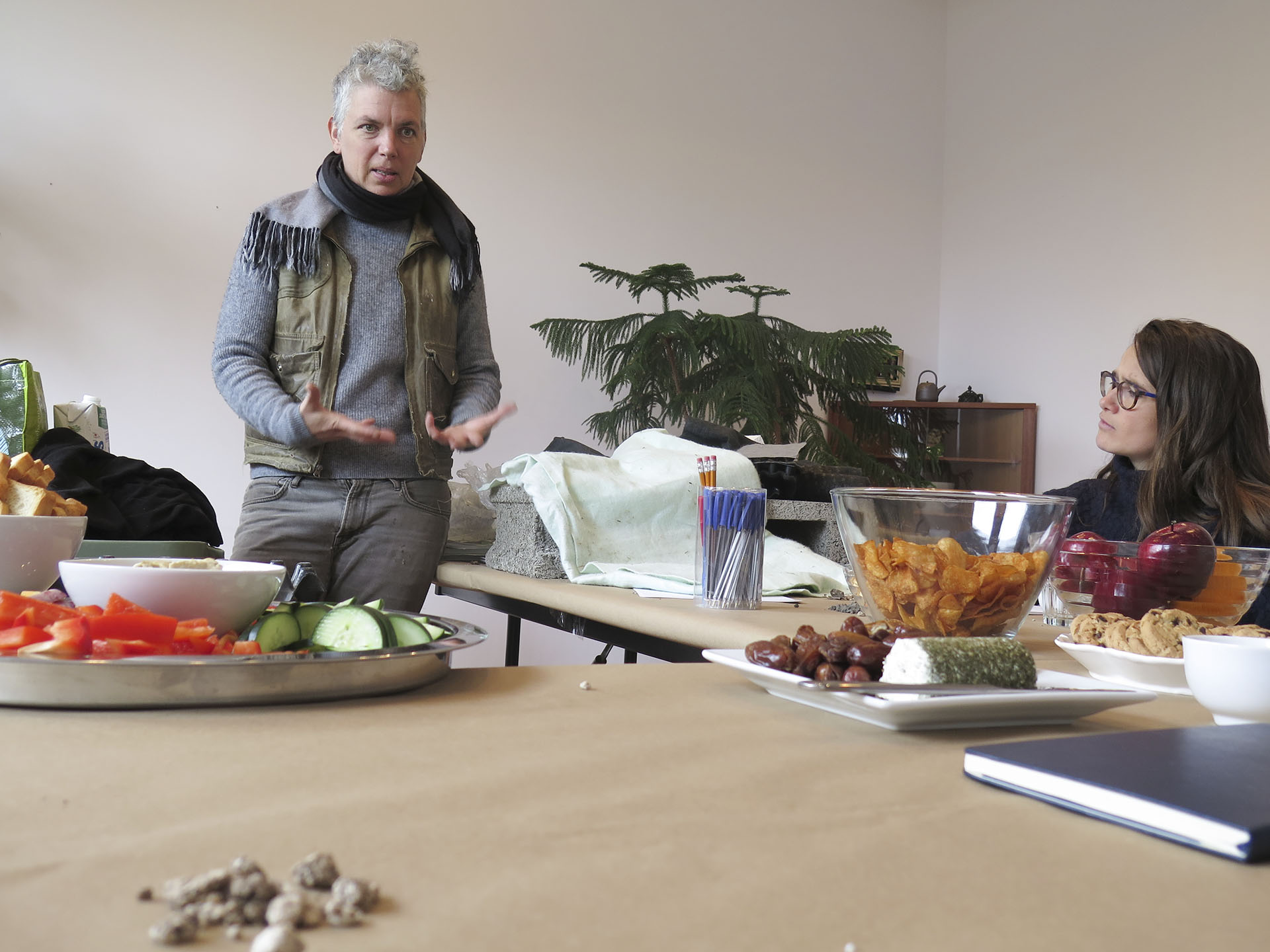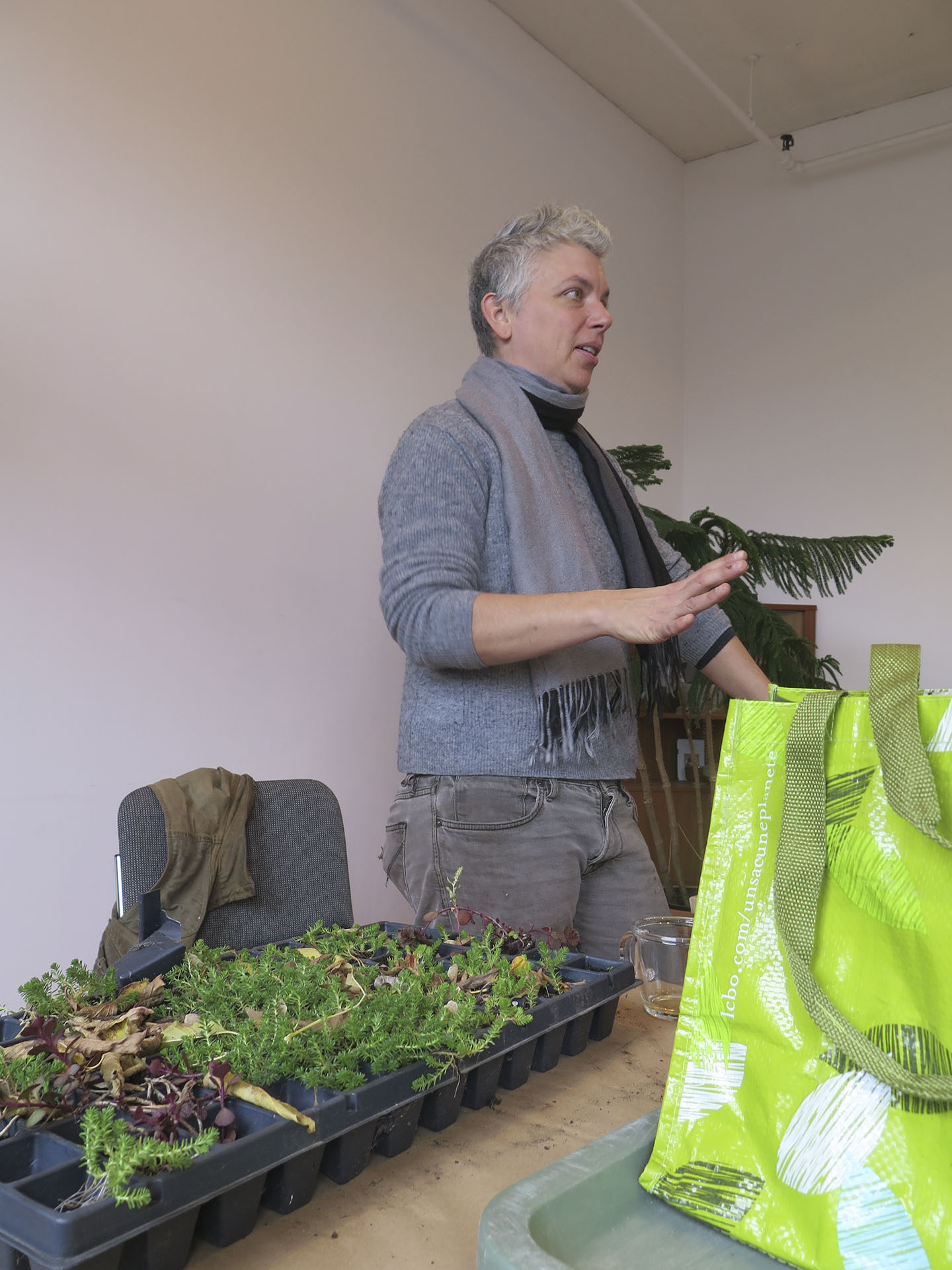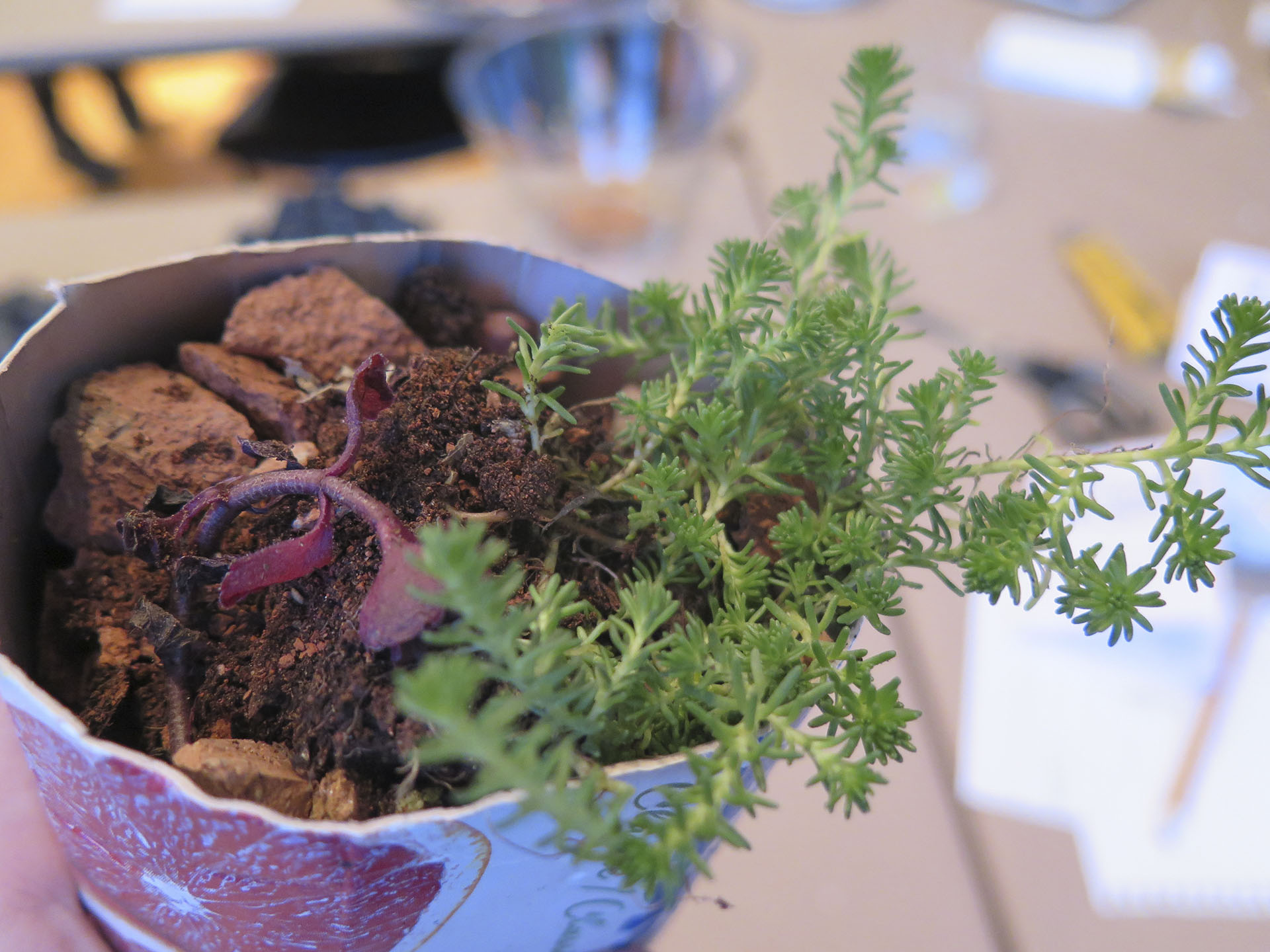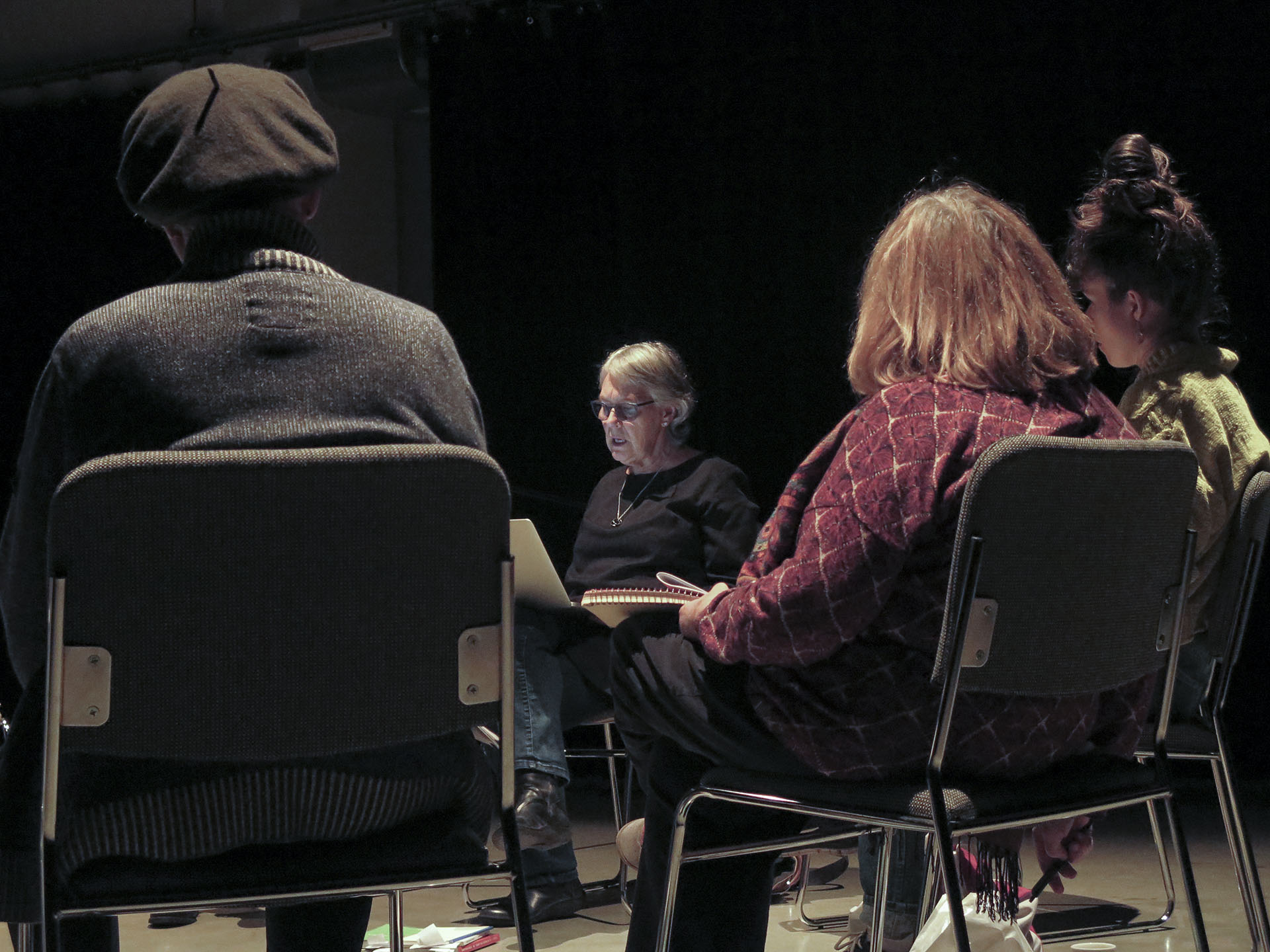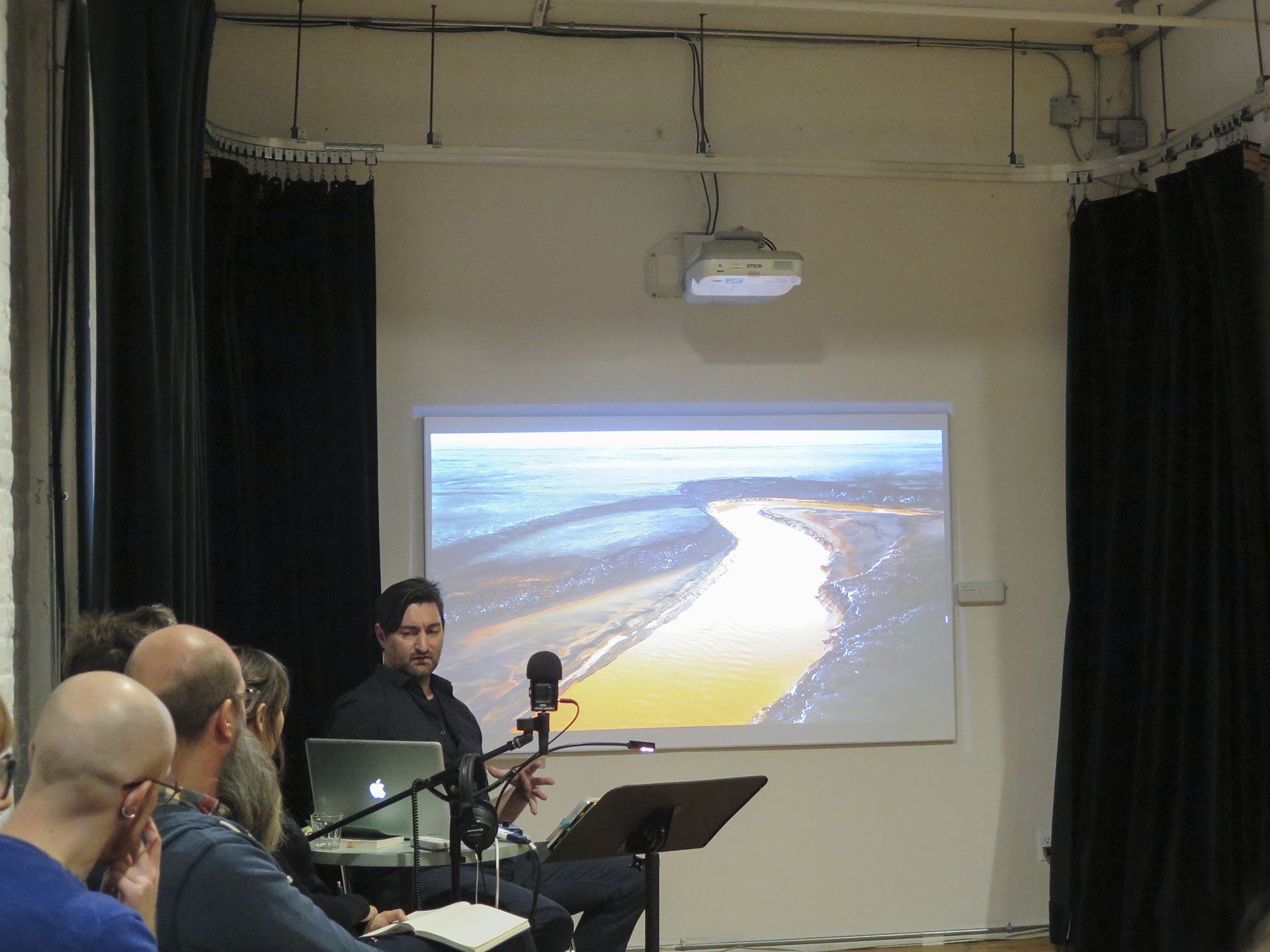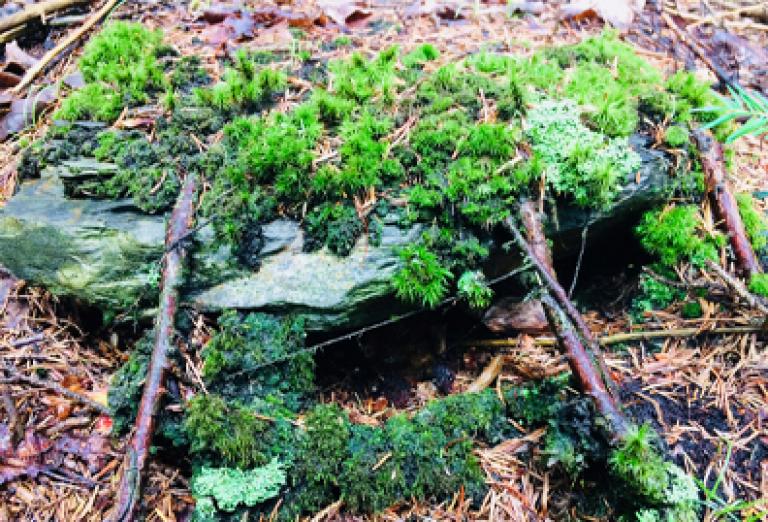“Forest systems are an intricate entanglement of aggregate structures that coalesce to support life in an elegantly balanced continuum. They are a slow, sustained emergence of interlaced redundancies, competition and mutuality. Observing these complexities is important to our own existence, one that is fundamentally inseparable from nature. What then is the environmental responsibility of the art world in a critically transitioning, overburdened ecosystem? Do artists and cultural workers have inherent obligations to decouple their practices from the surfeit and hubris of unbridled capitalism, being envoys of creative and not of destructive processes? Our irrational compulsion for exponential growth, firmly merged with fossil fuel overindulgence, has been radically impacting the ecosystem in erratic and unprecedented ways. The art world and market capitalism generally coexist in a vigorous hyperparasitism, where often growth, grandeur and impertinence are paramount at the expense of economy, probity and essence.
Profligate art practices run antithetical to the integrality of natural systems, so what would a real engagement resemble? Not one that only addresses environmental issues and attempts to reconcile with our appetites, but an approach that actively develops and applies methods that shift how we live and experience the world through art. Permaculture and other reciprocal agroecological practices, where a 'whole system thinking' approach is considered, look to the forest as a model (as did our ancestors). With an appreciative eye for the extent of natural cycles, recursion arises, patterns replicate. Without this type of consideration across all aspects of civilization, where culture as crux and articulation is crucial, the equilibrium of our world could very well unravel. If then the narrative is to transform how we fundamentally live on the planet, then is it possible to modify the paradigm from within such a substantial sphere of influence? With recursion in mind, viable sustainable methods can be adopted, implemented and shared in order to create heuristics for incremental systemic change.”
- Stephen Beaupré
Pursuing its research interests around the anthropocene, global warming and the ways the art community can address these issues on creative, theoretical and practical planes, OBORO invites the musician, thinker and in-house art handler Stephen Beaupré to draw on its institutional structure to develop a program of activites exploring these systems. Working along with artists and thinker Monique Régimblad-Zeiber and futurist and art activist Atom Cianfarani, he proposes a series of public programming to delve collectively into thinking about the terms we use and the actions we can take as artists and cultural workers.
Reading Circle with Stephen Beaupré: Greening the White Cube
Museums, art galleries and artist run centres are malleable spaces that exist to promote and disseminate the fruits of creative practices in all of their insight, innovation, beauty and frenzy. These spaces are, at their core, unoccupied and content-less but are continuously filled with questions and propositions about the essence of living. At their best, the creative practices exhibited within their walls broaden our quality of life, fill us with new passions and humours, prompt new expansion on our perception of being. These institutions remain, however, typically quite wasteful generating excessive landfill refuse and greenhouse gasses as conventions of installing and dismantling exhibitions have not yet fully aligned with the very immediate and urgent climate crisis. What is the ethical responsibility and commitment of these institutions when considering the environmental impact of their actions if their true desired goal is in fact to improve quality of life? Using the recent article The Green Cube by Chris Hampton as a springboard, and expanding on the themes of permaculture and cyclical systems, this reading circle will attempt to explore these questions from both practical and theoretical perspectives in an open discussion format stemming from disparate viewpoints of anyone touched by the art milieu.
Reading:
Hampton, Chris. "The Green Cube", Canadian Art, Fall 2018. Available here
-
Workshop # 1
DIY Heaters: Heat your apartment by capturing free/found energy
October 20, 2018, 1 to 5 PM at OBORO
Free, taught in English with the possibility of a live translation, registration required, no prior knowledge needed.
Do you have an electric dryer in your apartment? Or a large window that faces South/the sun? This hands-on workshop will teach you to build a simple heater and reduce your hydro bills for the winter. Harness passive house heat and release it into your home. Must have the willingness to get your hands dirty. I treat my workshops like sewing bees, collectively working and talking. Talking point: We can't buy our way out of climate change.
Supplies needed for each participant
> Option 1: Dryer bucket heater
- 1.5 gallon bucket (5.67 l)
- One 4" (10.16 cm) flange for dryer
- One hose from hardware store OR a 2l plastic bottle
> Option 2: DIY window heater
- One large cardboard box
- One measuring tape
- Black duct tape
Workshop # 2
Water Movements Through the City: Green roofs, water gardens and blue roofs
October 27, 2018, 1 to 5 PM at OBORO
Free, taught in English with the possibility of a live translation, registration required, no prior knowledge needed.
In this workshop, you will learn the basics of green roofing. We will discuss water issues in urban settings, blue roofs, "active" art installations, and water gardens. Each participant will receive my zine on DIY Green Roofing with found materials and build a model of a green roof to take home. Must have the willingness to get your hands dirty. I treat my workshops like sewing bees, collectively working and talking. Talking point: Water in the city.
Supplies for each participant
- One tetra pack or milk carton
- One brick or half a broken brick
- A hammer
- Styrofoam packaging (just a small piece, about the size of your milk carton)
-
Reading Circle with Monique Régimbald-Zeiber: Reflection-stroll with chorus of readers
Lectures glanées et croisées dans la métamorphose des métaphores
I was struck by this sentence of Peter Wohlleben in The Hidden Life of Trees: Discoveries from a Secret World: "When we step into farm fields, the vegetation becomes very quiet. Thanks to selective breeding, our cultivated plants have, for the most part, lost their ability to communicate above or below ground—you could say they are deaf and dumb—and therefore they are easy prey for insect pests. [...] Perhaps farmers can learn from the forests and breed a little more wildness back into their grain and potatoes so that they’ll be more talkative in the future." I thought that permaculture seems to be the right answer to this invitation that the forester made to farmers. Thus, artists who see permaculture as a possible model may find in the forest a complement or even the possibility of creating a hybrid model. Let us add that the transformation of artistic practices and the evolution of the metaphors that nourish reflections on art, allow us to believe that this approach is already underway.
- Monique Régimbald-Zeiber
Reading List:
* This activity will take place in both French and English
* Participants need to have read the following texts (excerpts of the readings provided by OBORO before the event):
- Tableaux disloqués : enchevêtrement d'écriture, Monique Régimbald-Zeiber, les petits carnets.*In French only
- La vie secrète des arbres, Peter Wohlleben, Éditions Multimonde, p. 221-222. / The Hidden Life of Trees, Peter Wohlleben, Greystone.
- Écorces, Georges Didi-Huberman, Les éditions de minuit, p. 9-10. / Bark, Georges Didi-Huberman, The MIT Press.
- Kuessipan, Naomi Fontaine, éditions Mémoire d’encrier, p. 9. / Kuessipan, Naomi Fontaine, Arsenal Pulp Press.
- La permaculture : une brève introduction, Graham Burnett, éditions Kindell, p. 18, 55. / Permaculture: A Begginer's Guide, Graham Burnett, Spiralseed.
